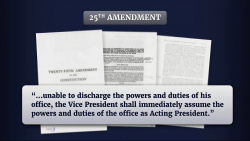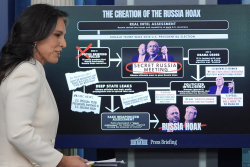US diplomacy must urgently adapt to shape global AI norms or risk ceding digital governance to authoritarian powers.
Artificial intelligence (AI) is reshaping the global order—not just economically or militarily, but diplomatically. As algorithms govern more decisions, from trade routes to refugee vetting, the question of who sets the rules is no longer theoretical. It’s geopolitical. The US is now locked in a high-stakes competition with China to shape global AI norms, governance models, and infrastructure. But while American technologists surge ahead, American diplomacy is lagging behind.
AI Is Now a Geopolitical Issue, Not Just a Technological One
For decades, foreign policy has centered on weapons, treaties, and territorial disputes. But in this century, diplomacy must also contend with predictive policing software in Africa, Chinese surveillance systems in Latin America, and generative AI tools used by authoritarian regimes to spread disinformation.
The State Department’s Emerging Technology primers, co-developed with the Foreign Service Institute and the Cyberspace and Digital Policy Bureau, reflect a growing awareness of this challenge.
China Is Actively Exporting Its Model of Digital Governance
China has understood this for years. Through initiatives like the Global Initiative on Data Security and the Digital Silk Road, Beijing is exporting its tech governance model across Asia, Africa, and Latin America. Huawei and ZTE offer affordable surveillance and communications infrastructure with few questions asked. These tools are bundled with training, cloud services, and soft power. In many places, the Chinese model is now the default.
US Policy Remains Fragmented and Lacks Diplomatic Muscle
Meanwhile, the US remains fragmented. Though the White House has issued Executive Orders on AI and formed domestic advisory councils, its international tech agenda lacks depth and continuity. The 2022 Declaration for the Future of the Internet was a step in the right direction, endorsing an open, interoperable, secure, and reliable internet; however, it remains nonbinding and under-resourced.
A Diplomatic Surge Is Essential to Protect Democratic Values
What’s needed is a diplomatic surge. That means embedding tech attachés in embassies, scaling up AI literacy in the Foreign Service, and integrating digital governance into trade agreements and multilateral forums. It also means listening to emerging economies, many of whom don’t want to pick sides but do want secure, rights-respecting infrastructure.
The stakes are high. Without US leadership, digital norms will calcify around authoritarian defaults. Privacy, transparency, and algorithmic accountability could become luxuries rather than expectations. And the world’s data—from biometric profiles to supply chain logistics—may increasingly flow through closed, opaque systems.
In the past, the US led the creation of institutions, including the World Trade Organization and the Universal Declaration of Human Rights. Today, it must lead again—this time on the digital frontier. That begins not in Silicon Valley, but in Foggy Bottom. Diplomats must learn to speak the language of AI governance because the future of democracy may well depend on it.
About the Author: Steven Hendrix
Steven Hendrix is chief executive of Hendrix LLC and senior research fellow at DePaul University College of Law. He is a former career diplomat and Coordinator for Foreign Assistance of the US Agency for International Development (USAID) at the US State Department.
Image: Shutterstock
















